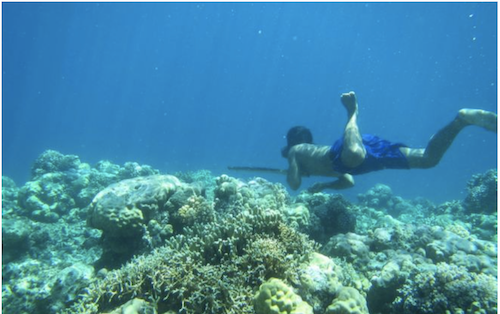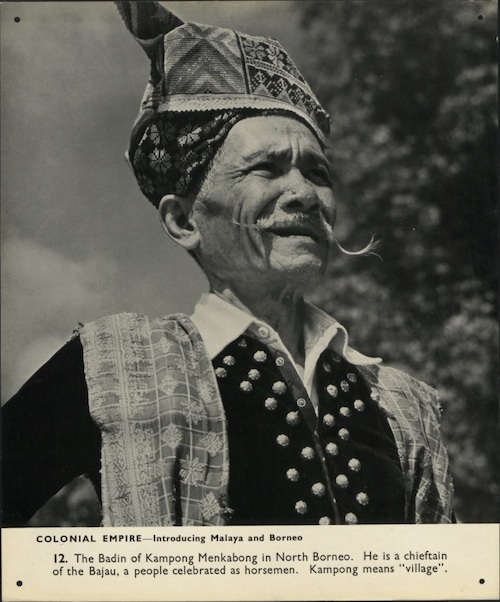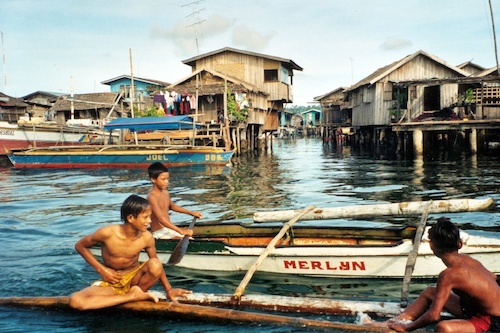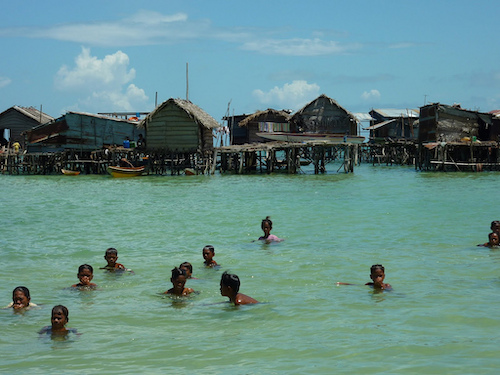How long can we possibly hold our breath under water ? Without taking actual numbers, we can safely say - “not for long”. But what if I tell you that there are people belonging to a tribe whose livestyles has enabled them to evolve into people who can hold their breath under water for a few minutes easily, and their livelihood is predominantly linked to it ?
Meet the Bajau tribe.

The Bajau people live on the waters of Southeast Asia, where they have evolved into living off a predominantly sea-life, with their internal organs adapting to the surroundings. They are sometimes called sea-gypsies.

Though no verified source of their origin, they have lived almost exclusively on water for many centuries. They reside mostly in the waters southwest of the Phillippines. A migreatory people, they drift from place to place. They live on long houseboats known as lepas. They usually come ashore to trade or seek shelters during storms. The children learn to swim young and begin fishing and hunting as early as eight years old. Most of the Bajau are expert freedivers. They are able to dive down to depths more than 230 feet, can stay submerged 60 feet underwater for several minutes, and usually spend a total of around five hours a day underwater. A research found that the Bajau people have spleens 50 percent larger than the average human of neighboring areas. A larger spleen means a larger reservoir of red blood cells and thus more oxygen and a greater ability to stay underwater. Because they spend so much of their time diving, many of the Bajau people wind up with ruptured eardrums thanks to the pressure underwater — and some will purposefully perforate their eardrums to make diving easier.
For the Bajau people, fishing isn’t just a trade and the water isn’t just a resource. At the heart of their identity is their relationship with the ocean and its inhabitants.

The stigma associated with being nomadic has also forced many to give up their lifestyle. Being accepted by surrounding cultures gives them access to government programs that provide aid and benefits they wouldn’t otherwise receive. Today, more and more Bajua people are being made to live on land (some groups have long lived on land as there is no one completely unified group of people identified as Bajau). For several reasons, it’s possible that the current generation could be the last able to sustain themselves off the water.

Image Credits
